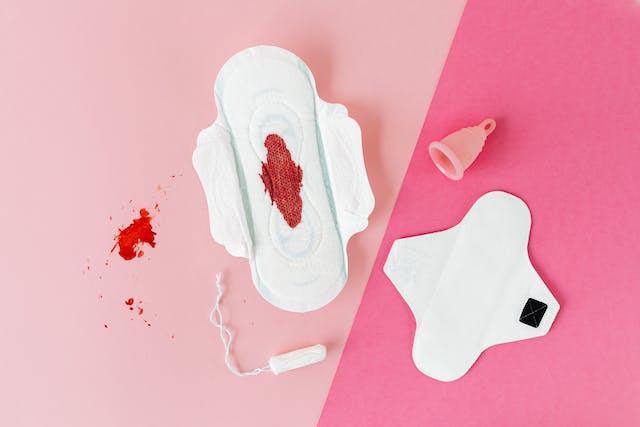The menstrual cycle is a much-hyped physical condition that must be addressed easily and fluently. The simple fact is that when puberty hits a young girl, changes in the body start taking place. It is a perfectly healthy sign for girls to go through their period cycle, highlighting their optimum reproduction health.
So, addressing the issue of periods with your young daughter without inhibition is the need of the hour also consult with the Best Gynaecologist in HSR Layout, Bangalore.
But how is it possible when sanitary pads are covered in black plastic when you go to the shops to buy them and when the menstrual cycle is seen as a huge taboo amongst the general public?
It is only possible when the stigma revolving menstrual cycle gets driven away, and we have an adequate understanding of feminine hygiene and women’s reproductive well-being.
Why is the topic of periods difficult to address?
The blame for stigma and taboos surrounding the notion of periods is highly based on traditional viewpoints. From the time of inception, a woman on her period is called out to be impure. She is not allowed to enter temples and take part in rituals that relate to gods and goddesses. Various other myths related to the menstrual cycle make it all the more difficult to address the topic of menstrual cycle.
From generation to generation, it has been established that the menstrual cycle should be a hidden thing. The elders in our family have instilled in us the notion that women should keep quiet about menstrual cycles, their reproductive health, and the pain that they particularly endure during that time of the month.
With time, the perspectives are changing. The concept of periods is being addressed, and simultaneously, the traditional shackles are being broken. However, the time has come that we become more vocal and change the thought process in the young ladies by telling them, “There is nothing to hide about periods” and “You shouldn’t feel guilty that you are bleeding.”

How should you talk to the younger ladies about menstrual health?
Let me narrate a story of how Sana’s mother spoke to her about the menstrual cycle.
Sana is a ten-year-old girl who has recently started getting her periods. When puberty hit, her body was developing. She started to feel the change in her. When the period started, he got scared and started crying profusely about why she was bleeding. Her mother consoled her and made her understand that having periods is natural, and it is a part of the growing-up process.
However, this little information didn’t help her. She started becoming shy and avoided discussions on the menstrual cycle. She refused to go to school during her periods, and her attitude, behavior, and physical gestures showed her level of discomfort. Her mother noticed the abrupt changes in her daughter. She understood the problem.
Here’s how she broke the ice by clearly talking to her daughter about the concept of the menstrual cycle.
· Put an end to the ‘drama’ surrounding periods.
Mothers should know how to talk about periods. Planning a strategy that would drive away any kind of fear or shyness in their young daughters is essential. The right way of acknowledging periods is by saying- “It is not at all a huge deal.”
First, the elders and the mothers should make strategies and choose words that make the young ones understand that bleeding for certain days every month symbolizes good menstrual health. It also highlights that the girl is healthy and can reproduce when she turns into an adult. A young girl needs to respect her body and find confidence in her appearance and health.
· Normalize Period talks
The menstrual cycle should not be a secretive idea anymore. It is okay to bleed. It is okay to have mood swings during periods. It is okay to have painful periods. It is okay to have pre-menstrual symptoms. However, it is not okay to feel shy or uncomfortable. It is not okay to feel guilty while having a normal and healthy period cycle.
Elders should see to it that their daughters don’t feel awkward while talking about periods. Also, it’s essential to normalize talks on pubic hair and body changes and drive away embarrassment while having a conversation on such issues.
· Why is the mother shy?
In many cases, it has been found that mothers or grandmothers don’t want to talk about menstrual health. They are shy and feel that it is a crime to talk about menstrual health openly. Also, parents may feel that they may not be able to talk to their daughters clearly on the topic of periods, and hence, they avoid confrontations.
It must be kept in mind that a formal speech on period health is not what your girl is looking for. First, be her friend. Make her comfortable. There must be many sources, but a mother shall remain the best resource for a daughter to understand and know about menstrual health.
· Start that puberty talk early.
When a girl hits the age of puberty, changes in the body become prominent. So, whether your daughter has started getting periods or not, start educating her about menstrual hygiene. Make them understand that though they will bleed or go through menstrual cramps, it is completely normal, and nearly half of the population across the world goes through the same.
Addressing puberty and menstrual health is essential. Parents should have a positive approach toward their daughter’s menstrual cycle. It is not ‘what you say”. It is “how you say”. Normalize talking about menstrual health.
However, if parents find it difficult to make their girls comfortable while addressing their concerns regarding periods, bring them to a gynecologist who will be able to give a clear idea about menstrual health.
Also, schools should have a positive approach, emphasize spreading knowledge about menstrual health, and make every young girl feel “You are not alone.” Healthy communication will eliminate false notions about periods from the minds of young girls and ensure that they possess optimum menstrual health.


